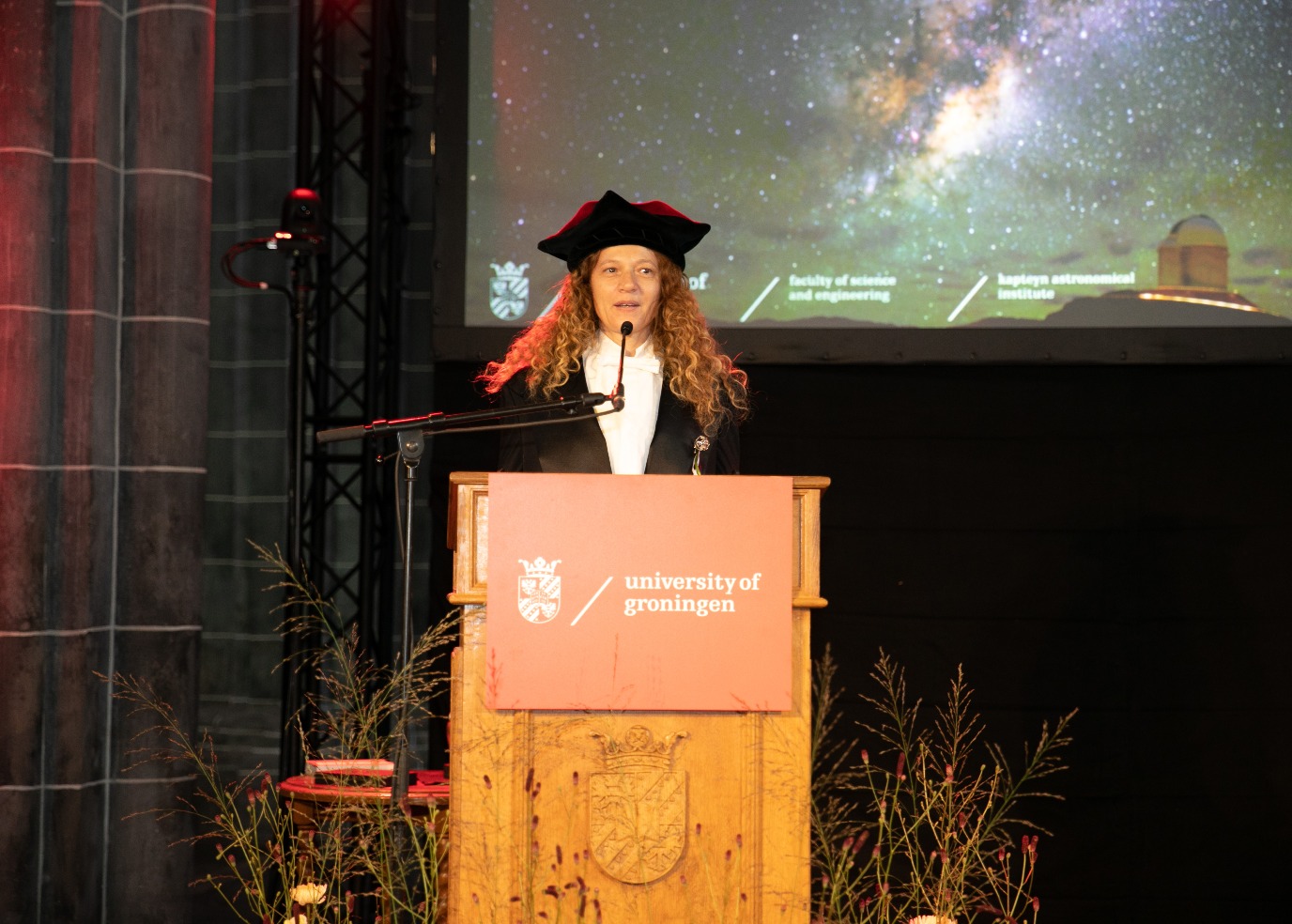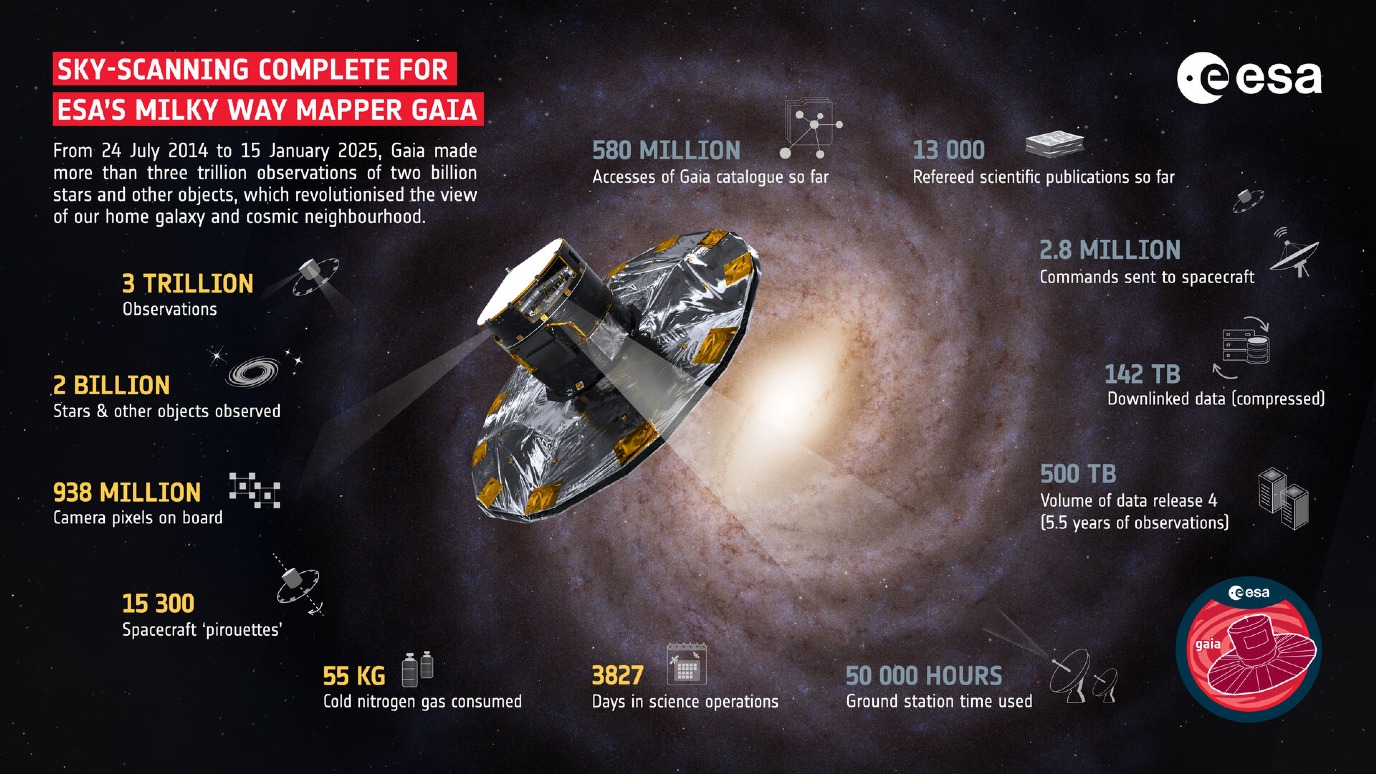De opbrengst van twaalf jaar Gaia-waarnemingen

De Europese ruimtelescoop Gaia, die de Melkweg in kaart brengt, stopte eerder deze maand met het scannen van de hemel. Sinds 2013 heeft Gaia meer dan drie biljoen waarnemingen gedaan om de beweging van ongeveer twee miljard sterren te meten. RUG sterrenkundige Amina Helmi was betrokken bij het ontwerp van de satelliet en het beschikbaar stellen van de metingen. Die gebruikte zij ook voor haar eigen onderzoek naar het ontstaan van de Melkweg.
‘Ik heb meegedacht over het ontwerp van de missie voordat deze in 2000 is goedgekeurd door de Europese ruimteorganisatie ESA’, vertelde Helmi in 2016. Daarna bleef ze betrokken bij de bouw van de satelliet. Helmi maakte met twee collega’s van het Kapteyn Instituut voor Sterrenkunde van de RUG deel uit van een groep wetenschappers die de data van Gaia heeft gevalideerd: ‘We keken of de metingen voldoende kwaliteit hadden.’
Helmi onderzoekt hoe onze Melkweg de vorm kreeg die hij nu heeft. Met gegevens van Gaia kon ze een kaart maken van de baan die sterren volgen binnen de Melkweg. Daaruit kan ze afleiden waar ze vandaan komen en welke sterren uit dezelfde ‘kraamkamer’ komen.
Sterren ontstaan in groepen uit gigantische stofwolken en een deel van de oudste sterren is waarschijnlijk elders, in een ander stelsel gevormd. Die stelsels zijn in een ver verleden gefuseerd met de Melkweg. De onderzoeksgroep van Helmi toonde onder meer aan dat dit vaker voorkomt dan werd gedacht. Helmi won met haar onderzoek al vele prijzen, waaronder de prestigieuze Spinozapremie in 2019.

Lees hier meer over Gaia:
Meer nieuws
-
17 februari 2026
De lange zoektocht naar nieuwe fysica
-
10 februari 2026
Waarom slechts een klein aantal planeten geschikt is voor leven
